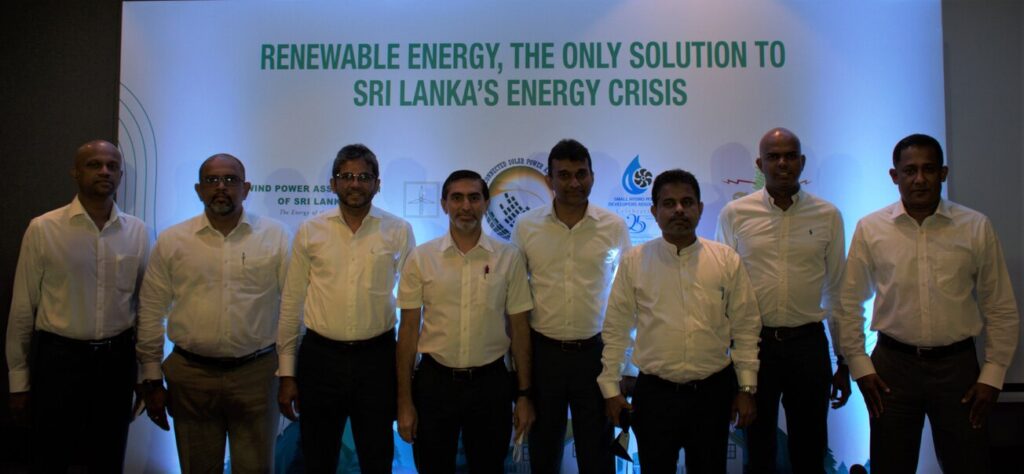Sri Lanka is currently facing an acute energy crisis, primarily due to the country’s reliance on imported fossil fuel. The solution to this is for the country to move on to more renewable sources of energy such as wind, solar, bio-gas, biomass and hydro power. Renewable energy also presents a host of other benefits both socially and economically as well.
In the backdrop of dwindling foreign currency reserves and capacity shortages, the only logical solution for Sri Lanka to take is to adopt renewable energy as the primary source of energy production. Renewable energy can be generated using Sri Lanka’s ample natural resources. This would also offer some relief to Sri Lanka’s diminishing foreign reserves as renewable energy does not need to rely on fuel imports.
With the price of Oil, Coal and Gas increasing globally, it is not sustainable for countries such as Sri Lanka which has to import fossil fuels to have larger exposure to non-renewable sources of energy. It is best to make the switch to renewable forms of energy sooner rather than later, so that the country’s economy is not harmed.
Speaking at a press conference held recently, Riyaz Sangani, Past President of Hydro Power Developers Association stated, “Our goal as the renewable energy sector is to help the government and the people overcome the current energy crisis in the country. We believe that the key to this is to increase co-operation between the government and the private sector. Only then will we be able to successfully overcome all obstacles and make the switch to renewable energy.”

Secretary and Legal Advisor, Thusitha Peiris, Small Hydro Power Developers Association, President, Manjula Perera, Wind Power Developers Association, Secretary, Riyaz Sangani, Small Hydro Power Developers Association, Past President, Lasith Wimalasena, Ground Mounted Solar Developers Association, President, Chamil Silva, Bio Energy Developers Association President, Kushan Jayasuriya, Solar Industries Association, President, Prabath Wickramasinghe Small Hydro Power Developers Association, Past President.

There are currently a total of 294 private sector renewable energy developer projects which have been commissioned. These projects have combined capacity of 718.334 megawatts (MW). The total number of projects needs to increase drastically, for the country to truly reap the full benefits of renewable energy.
One of the main issues which the renewable energy sector faces is the government approval process which can take years to complete. This process needs to be streamlined and implemented in an efficient manner as possible. Renewable energy developers also run into a myriad of challenges from the CEB that has delayed approval and grid connections, sometimes attributed to incorrect technical analysis. Bringing correct knowledge and international best practices to the CEB will smoothen these issues.
Another issue that has hampered the success of the renewable energy sector is the importation restrictions imposed on the sector, which has made it difficult to obtain the machinery necessary.
In addition to the immediate benefits which the country will receive, renewable energy sources also pose less of a risk to the climate and environment. This will help protect the environment and ensure that the country’s development will not be hindered by any environmental issues in the future.
There have been many local and foreign investors who have shown interest in investing in renewable energy for Sri Lanka. These investors need to be shown that it is a worthwhile investment and that hindrances will be minimal. Only then can Sri Lanka overcome its socio-economic woes and continue with development.


